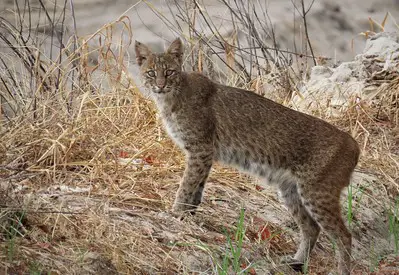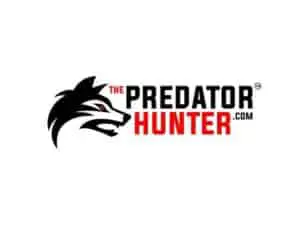Do you want to go hunting bobcats in Iowa this year? This article some of the fundamental laws you will need to know to get started. It also provides information such as seasons, harvest limits, and required permits for bobcat hunting in Iowa. It is not a legal document and is not intended to cover all hunting laws and regulations.

In Iowa, bobcat hunting season runs from November 5th to January 31st.
All residents and nonresidents, regardless of age, must have a Furharvester License to hunt furbearing animals. Iowa residents aged 16 to 64 and nonresidents age 16 and older must pay the wildlife habitat fee to hunt or trap.
Purchase an Iowa hunting license here.
Check out the Iowa hunting seasons.
First time bobcats hunters should read these two articles:
- Three vital tips to bobcat hunting success.
- How to read bobcat sign.
You can also hunt coyote in this state. Recommended reading: The laws for hunting coyotes in Iowa.
Related: Learn the rules for hunting fox in Iowa.
General rules for bobcat hunting in Iowa.
Suppressors. In Iowa suppressor legally owned may be used for hunting purposes.
Bag limits.
SEASON LIMIT: No more than 3 bobcats total can be legally harvested by a furharvester in a season.
The season bag limit for bobcats either hunted or trapped in Audubon, Boone, Cedar, Chero- kee, Clinton, Crawford, Dallas, Delaware, Guthrie, Harrison, Iowa, Jackson, Jasper, Johnson, Jones, Lyon, Monona, Muscatine, Plymouth, Polk, Poweshiek, Scott, Shelby, Sioux, Webster and Woodbury County (counties in gray) is 1 bobcat per person.
The season bag limit for bobcats, either hunted or trapped, in Adair, Adams, Appanoose, Cass, Clarke, Davis, Decatur, Des Moines, Fremont, Henry, Jefferson, Keokuk, Lee, Louisa, Lucas, Madison, Mahaska, Marion, Mills, Mon- roe, Montgomery, Page, Pottawattamie, Ring- gold, Taylor, Union, Van Buren, Wapello, Warren, Washington and Wayne Counties (counties in red) is 3 bobcats per person.
Decoys and electronic callers. Are permitted for hunting bobcats. Decoys on public land must be removed 1/2 hour after sunset. Other restrictions may also apply to public land—check with your local game warden.
While electronic callers are expensive, mouth and hand callers are less pricey but take time to learn how to use.
Read this article and watch the video to learn how to use a closed reed rabbit squealer.
You can read about some highly effective but inexpensive ($20) decoys here.
You can check Amazon’s price list for callers and decoys here.
Night hunting bobcats in Iowa.
Iowa allows night hunting of bobcats, but does not allow the use of artificial light or infrared emitters. Bobcat hunting at night is therefore limited to using the light of the moon, hunting animals on snow, or the use of thermal riflescopes.
The law states:
“Sights that project a light beam, including laser sights, are not legal for hunting. You cannot cast the rays of a spotlight, headlight, or other artificial light on a highway or in a field, woodland, or forest for spotting, locating, taking, or attempting to take or hunt a bird or animal, while having in possession or control, either singly or as one of a group of persons, any firearm, bow or other devices capable of killing or taking a bird or animal.
This rule does not apply to hunting raccoons or other furbearing animals when they are treed with the aid of dogs.
A person may use an infrared light source for hunting coyotes as long as the infrared light source is mounted to the method of taking or to a scope mounted on the method of taking. HOWEVER, no person shall use an infrared light source for hunting coyotes during any established muzzleloader, bow, or shotgun deer hunting season.“
Don’t forget to get a CITIES tag for your bobcat in Iowa.
Contact a Conservation Officer within 24 hours of taking an otter or bobcat to receive a CITES tag. The CITES tag must remain with the animal until it is sold. Animals kept for taxidermy or other display, or educational purposes must have the CITES tag retained at all times.
Otters and bobcats accidentally captured after the season has closed, and bobcats accidentally captured in an area of the state closed to bobcat harvesting must be turned over to the DNR without penalty.

